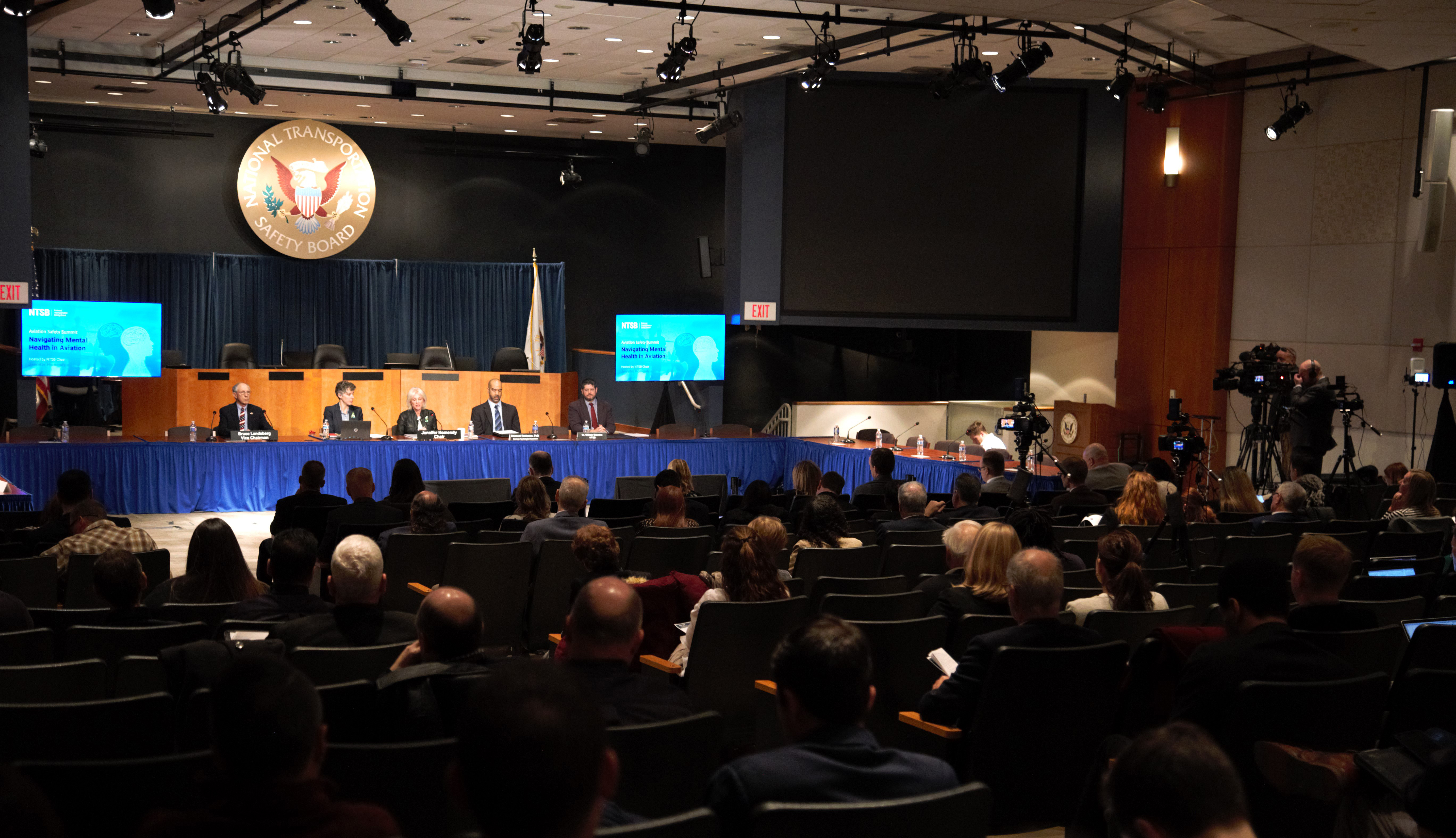Transforming a 'culture of silence'
Safety experts, mental health specialists, pilots, government agencies, and aviation industry professionals met at a forum hosted by the NTSB to discuss breaking down barriers to mental health care in the aviation industry.
Pilot mental health has been at the forefront of the FAA agenda since Federal Air Surgeon Dr. Susan Northrup was appointed in 2021. Northrup has advocated consistently for early intervention and dispelling the myths around certification qualification so that the culture around mental health can improve.
However, many within the industry, including individuals who have struggled through the costly and time-consuming aeromedical certification process, state that federal progress is too slow and hope to see conditions revised. The most contentious issues were discussed at a December 6 safety summit on Navigating Mental Health in Aviation hosted by the NTSB.
NTSB Chair Jennifer Homendy’s mission for the summit was to examine the consequences of the current system, identify how best to support affected individuals in the aviation industry, and make aviation safer for all. “It’s somewhat of an open secret that current rules incentivize people to either lie about their medical history when it comes to mental health or avoid seeking help in the first place,” Homendy said, criticizing what’s called by many a culture of silence that persists and threatens the safety of the industry. “I think it’s safe to say, no one wants a system, no one, that disincentivizes transparency or one that discourages aviation professionals to disclose what’s really going on in their life,” she said.
Summit participants and public attendees heard opinions and research from a spectrum of experts, ranging from those who had firsthand experiences navigating the FAA’s mental health certification process to doctors who have conducted research on the topic. Dr. William R. Hoffman, a neurologist and aircrew brain health researcher, has spent years studying the aviation medical certification process. Hoffman’s 2023 research on aircraft pilot health care avoidance behavior found that 56 percent of U.S. pilots reported a history of health care avoidance behavior due to the fear of loss of flying status. Policy confusion; uncertainty navigating certification; the FAA’s processes and timing; the culture and literacy around mental health; and concerns about financial loss all can factor into a pilot’s decision to avoid or decline health care.
The research mirrors the firsthand experiences detailed by panelists who spoke out about navigating the FAA aeromedical system. Pilots who voluntarily grounded themselves or disclosed medication information faced challenges when trying to reenter the cockpit. Years of waiting because of backlogs at the FAA and tens of thousands of dollars spent on top of lost income were common denominators among those who spoke.
Tim Sisk has been a pilot for nearly three decades and in March 2022, he went in for a routine medical examination and left with a deferral that was later followed by a denial. This disqualification was due to his use of a psychoactive prescription—an FDA-approved medication that has been on the market for 40 years and has limited side effects. Sisk has spent 21 months and more than $10,000 seeing specialists, undergoing repeat tests, and seeking legal assistance. “I support and I fully back the FAA’s mission to have the safest and most efficient airspace in the world,” he said. “But the current policies are a barrier to that when it comes to mental health for our pilots, for our controllers.”

Dr. Penny Giovanetti, director of the medical specialties division at FAA headquarters, spoke about reframing the topic as a performance and safety issue and attempted to dispel some of the myths associated with certification-loss probability. Additionally, Giovanetti addressed the frustrating delays in certification. Although the agency has added three staff psychiatrists since 2019, demand for specialty review in psychiatry continues to increase. The FAA has recently bid out a contract for four additional aviation psychiatrists to join FAA staff in the field and “get this wait down to something that is reasonable,” said Giovanetti. “We are watching this, we are optimistic that the backlog is coming down, but the backlog is so overwhelming that it is not going to happen fast.”
Several panelists expressed optimism for the new FAA aviation rulemaking committee that was announced on December 5. It will focus on identifying the barriers individuals across the aviation industry face during the aeromedical certification process and aim to address how to break down those barriers. The committee will be composed of 20 non-FAA voting members as well as accommodate observers and will be selected by FAA Associate Administrator for Aviation Safety David Boulter.
“There are many barriers personnel face in seeking mental healthcare. To make it more complicated, different barriers are owned by different stakeholders,” said Hoffman. “Meaningful change will likely have multiple targeted interventions ranging from financial, information distribution, and investigation in research but we first need to make sure all of the right people are at the table.”
For Sisk, he hopes to see continued collaboration between industry and individual, ongoing advocacy from the community, and a multilevel push to ensure this issue doesn’t get swept up in yesterday’s news. “Sometimes a regulator needs to lead through hearing and responding in a meaningful way to the community it is leading,” he said. “I believe this is one of those times.”





